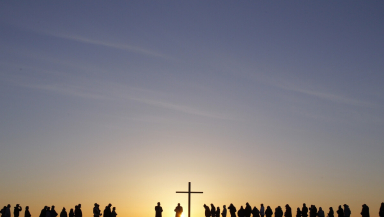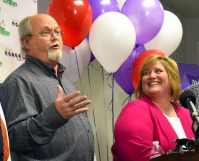
I Kings 17:7-16 tells us of the widow of Zarephath, who along with her son was kept alive through a famine by one of Elijah's miracles – their flour and oil didn't run out until it was over. But some time later, the story tells us, the woman's son became ill, and he died. Elijah prays, stretches himself on the child three times, and the boy's life returns to him.
What's happening here? All three of them have shared a miracle; God has shown himself to be real in a marvellous way. But the pattern of blessing has been interrrupted terribly. What did salvation mean, if it could turn so quickly to sorrow?
Elijah takes action. He carries the boy up to his own bed; prays, then lies on him, gets up, three times. It's an acted prayer. He's performing what he wants for the boy – for him to get up again and live; and we're told that the Lord heard Elijah's cry.

This story is in touch with the deepest realities of our lives. We do experience blessing, and we should praise God for it; but nothing gives us a right to expect that because we've been blessed, we're somehow immune from trouble and sorrow.
John Henry Newman wrote a famous hymn, Lead, kindly light: It has the lines, "Keep thou my feet: I do not ask to see/ The distant scene; one step enough for me."
The Christian faith is always step by step and day by day. None of us are innoculated against what Shakespeare calls the 'slings and arrows of outrageous fortune'. But what the story also says is that even when we're at our lowest ebb and in our deepest distress, God can bring life and joy again; even death is not the final word.


















